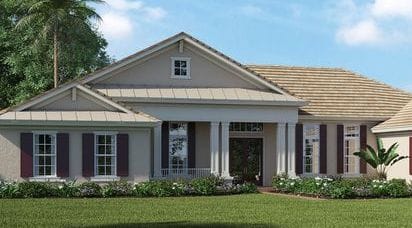We often have clients come into the office to discuss their estate planning. Not uncommonly, the term “homestead” will come up and after some discussion, it becomes clear that there is confusion on use of the term. One of the reasons for this confusion is that, from a legal perspective in Florida, homestead can refer to different things depending on the context.
In essentially every context, when we refer to a person’s homestead in Florida, we are referring to their primary residence. However, with regard to that primary residence, there are several contexts in which referring to homestead has different implications or meanings.
First of all, with regard to a person’s Florida homestead, there is a real estate or ad valorem tax context when we refer to a person’s homestead. The State of Florida taxes real estate annually, including one’s homestead, based on the appraised value of the property as determined by the county property appraiser. However, with homestead, there is an exemption of $25,000 from those taxes. So, for example, if your homestead is appraised at $150,000, you are eligible for a homestead exemption of $25,000. You would only pay tax on $125,000-not on $150,000. However, to get this homestead exemption, you must apply for it through the county property appraiser’s office.
A second context of the term “homestead” is with regard to the constitutional protection from the claims of creditors. Article X, Section 4 of the Florida Constitution provides that:
There shall be exempt from forced sale under process of any court, and no judgment, decree or execution shall be a lien thereon, except for the payment of taxes and assessments thereon, obligations contracted for the purchase, improvement or repair thereof, or obligations contracted for house, field or other labor performed on the realty, the following property owned by a natural person:
(1) a homestead, if located outside a municipality, to the extent of one hundred sixty acres of contiguous land and improvements thereon, which shall not be reduced without the owner’s consent by reason of subsequent inclusion in a municipality; or if located within a municipality, to the extent of one-half acre of contiguous land, upon which the exemption shall be limited to the residence of the owner or the owner’s family…
If a Florida resident’s primary home qualifies for homestead protection as described above, then if a creditor sues the homeowner and gets a judgment against the homeowner, that judgment cannot attach to the home (or the proceeds of the home). In theory, a person could have a judgment against them and still own a large homestead with no threat of the judgment creditor getting the home or forcing its sale. This is likely one of the reasons O.J. Simpson, after having a multi-million dollar judgment entered against him in favor of the Brown and Goldman families, moved to Florida and purchased a home. The bottom-line is that in Florida your homestead is a protected asset.
One final context in which homestead is used refers to how a person’s homestead is handled upon their death. If a person who owns a homestead dies while married or having minor children, then there are limits on how they can devise the homestead. The details of how homestead can be devised in this context is the subject for another day but suffice it to say that if the homeowner is married or has minor children, he or she cannot leave the homestead to someone other than the spouse or minor children.
The nuances of the term “homestead” can be complicated. A person should consult an experienced attorney when addressing their meaning and context.


